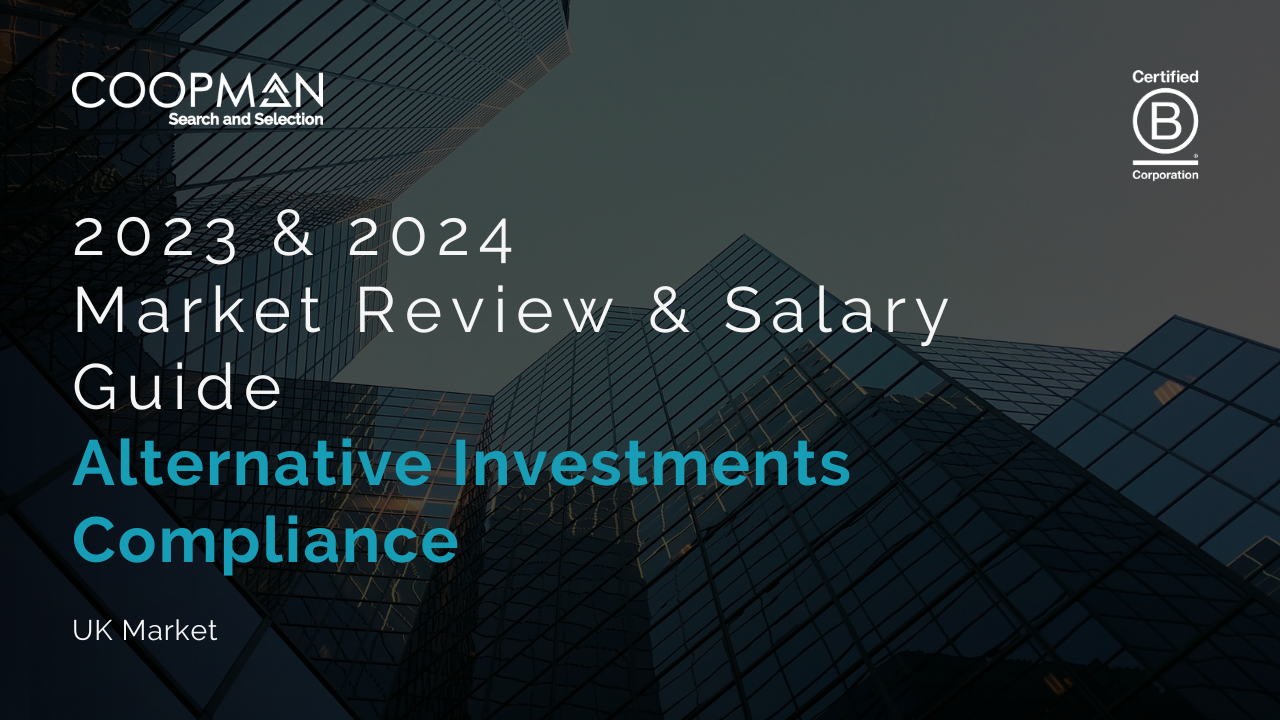2023 Market Review
There’s no two ways about it, 2023 was a tough year for financial services firms on the whole and the alternatives space was no exception. With record high interest rates, high inflation rates, conflicts in the middle east, the war in Ukraine and the cost-ofliving crisis, we saw a year of cost cutting and consolidation for a lot of companies.
In general hiring levels remained low in comparison to the hiring frenzy we experienced in 2022, however there were signs of the market picking back up again in Q4 which is a positive sign heading into 2024. As a knock-on effect of this we saw the market change from a candidate led market to a client led market, with more candidates available and more competition for the limited number of roles. This led to companies recruitment processes lengthening and taking longer to make decisions on suitable candidates. This left candidates frustrated, resulting in increased dropout rates. The vast majority of candidates tend to accept offers from faster processes.
Salaries within the alternatives industry have continued to rise over the last 12 months, candidates have been able to secure average uplifts of between 15%-25% by moving companies, which in comparison to previous years has been around 10%-12% on average. This has created challenges for companies in finding direct replacements. They either struggle to secure additional budget approval for external hires or opt to recruit at a junior level and promote internally.
Hedge Funds
Hedge Funds 2023 was a strong year for the hedge fund industry, last year’s strong industry performance followed a weak 2022, when a number of the top hedge funds lost money on market turbulence sparked by the war in Ukraine and Federal Reserve interest rate hikes aimed at taming inflation. This turnaround led to significant senior movement as vacancies opened up. The top 20 hedge funds performed exceptionally well, generating $67 billion for investors, a threefold increase from the previous year.
Hiring within the hedge fund space was busy across all levels, a number of the US multi-strat & credit funds, looked to grow their global presence with the opening of offices in London. This created a number of senior vacancies & movers in the market which we previously had experienced low levels.
At the mid-level, candidates with trading advisory, surveillance, transaction reporting/threshold reporting and regulatory experience across multiple jurisdictions were in high demand. At an associate level, candidates with a generalist compliance skillset and a keen interest in technology & data were preferred over others.
We also saw an increase in hiring across Europe as funds set up European offices, across Paris, Malta, Dublin, Milan and Madrid. We also saw 40+ funds apply for their DFSA licensees, which saw a number of high profile movers.
Private Equity/Private Markets
Private Equity/Private Markets The private equity industry had a challenging year, characterised by weak deal activity and a general decline in exits and fundraising. However, as the second half progressed, interest rates were put on hold and inflation started to recede, raising hopes for a revival of deals in 2024.
A number of US Private Equity & Private Market firms decided to open London offices to support with their investment activity within the UK and across Europe. We also saw a number of Australian Super (Pension) funds open offices in the UK to be closer to their private equity and debt managers, the country’s pension sector outgrows the home market.
Financial crime continues to be an ever-growing area within private equity & private markets, we saw a number of funds build out inhouse financial crime functions with the majority being mid-senior level hires. By having dedicated financial crime experts internally, this allowed tighter oversight of outsourced providers and ability to deal with investor/business queries. Hiring levels were low across the UK/European funds with any hiring being done at analyst or associate level.
Real Estate
Real Estate 2023 has been a challenging year for real estate due to persistent inflation and a 15-year high in interest rates, both of which negatively impacted economic growth. Transaction volume also continued to fall through the year, with deal making often paralysed by the standoff between potential buyers and sellers on pricing.
Recruitment levels were very low across real estate, a lot of individuals who specialise in real estate were looking to move into larger managers who cover different asset classes, which in turn meant any roles that came to market were replacement hires.
Infrastructure
Infrastructure Across the infrastructure space despite the macroeconomic climate, we have seen a number of large fund raises, BlackRock acquiring Global Infrastructure Partners (GIP) and General Atlantic agreeing to acquiring Actis, showcasing the growing investment opportunities in the infrastructure sector. In terms of hiring, we have seen steady growth with a number of firms making their first dedicated senior compliance hire or adding a junior hire to support the program. Digital Infrastructure remains a hot topic across this space, whereas more traditional assets have seen capital move away, reliable returns from digital infrastructure assets within energy are attracting investors.
Flexible Working
Over the past 12 months, hybrid work models have gained popularity as a solution to the remote versus office dilemma that companies have faced. There are arguments supporting both office-based and remote working, each contributing to employee productivity and well-being in different ways. However, remote working hasn’t been entirely positive, as employees often feel burnt out due to longer hours and fewer breaks. Primarily, hedge funds have reverted to 4-5 days in the office, with a select few offering a hybrid (3:2) working model. The most common theme across private markets has been the hybrid model (3:2), with several funds in discussions about reverting to 4 days in the office.
Talent shortages/retaining talent
In 2023, a significant talent shortage emerged in the 3–6-year experience bracket, compelling companies to offer above-market compensation to secure top talent. Specialist skillsets, particularly in trading compliance and core compliance, were consistently in high demand. Preference given to candidates fluent in multiple languages and experienced with various regulators (SEC, BaFin & AMF).
Retaining talent is on the forefront of a lot of company’s agenda’s and of course compensation, benefits and flexible working forms a major part of this. However, the ability of CCOs/Heads of Compliance to champion a culture of compliance within their organisations is becoming increasingly crucial.
This involves instilling a deep understanding of compliance requirements across all levels of the company, promoting ethical behaviour, and providing comprehensive training programs to employees. A strong compliance culture not only reduces regulatory risks but also enhances the organisation’s reputation and turnover.
The top three factors that employees are taking into consideration when considering current role vs a new role are:
- Flexibility and work-life balance
- Continued Professional Development
- Competitive benefits package including financial support for studying.
2024 Outlook
In 2024, it’s not just any election year; it’s quite possibly the election year. With at least 64 countries holding general elections, these political events will significantly influence the growth plans of many companies for years to come.
Looking forward, the private markets space will continue to grow in this year, Infrastructure assets and secondaries are expected to remain robust, and the momentum in private credit is likely to continue, even as interest rates fluctuate. Firms will need to ensure that they have robust processes and controls and that their risk and compliance functions are appropriately resourced as they do this. In 2024, we expect a particular supervisory focus on valuation, private credit, protections for retail investors and greenwashing risk. EU managers of private credit funds will also need to make important decisions about their business model ahead of the implementation of AIFMD II.
In the hedge fund sector, we anticipate ongoing success for credit fixed income strategies in 2024 amid the evolving interest rate landscape. Additionally, equity long/short strategies may pleasantly surprise, despite the equity indices reaching new highs, due to various factors. The expected success of event-driven strategies failed to materialise in 2023 but if PE firms were to unlock their dry powder (cash) this could change in 2024 and whilst global macro served as a perfect portfolio diversification in the crisis year 2022 its expected to continue to have mixed returns as it did in 2023. Allocators will be seeking double-digit returns in 2024 and are interested in credit, global macro, commodity and equity long/short strategies.
Client Input
When speaking to General Counsel’s and Chief Compliance Officers across the alternatives space, the three top regulatory concerns going into 2024 are:
- The EU’s MiFID III proposals
- The SEC’s Private Fund Advisor Rule proposals
- The EU’s AIFMD II proposals
The three top regulatory challenges:
- Interpretation and understanding of complex regulatory environments
- Managing compliance with multiple jurisdictions
- Allocating resources for compliance purposes
Challenges
Given the sheer scale of existing and planned rules and regulations covering the alternatives space, 2024 is going to be demanding within compliance. Ensuring robust compliance frameworks, risk mitigation, and technological advancements to navigate the complex regulatory environment will present both challenges & opportunities.
CCO’s will need to have a strategic focus on leveraging technology, addressing emerging risks, nurturing a compliance centric culture, staying vigilant on regulatory changes, and fostering collaboration across the organisation. By prioritising current trends like ESG, technology upgrades, future-oriented strategies, and alignment with business goals, CCOs can effectively navigate the regulatory landscape while providing a culture of compliance excellence within their organisations.
Strategic planning remains crucial as we enter 2024. Identifying potential experience or skills gaps within your team, along with assessing resource availability for upcoming projects and regulatory changes, ensures better preparedness for the challenges that lie ahead in the new year.
If you would like to discuss any of the topics mentioned in this update, please reach out to Chris Wood via email at chris.wood@coopman.uk or alternatively on +44 731 1387 186.








